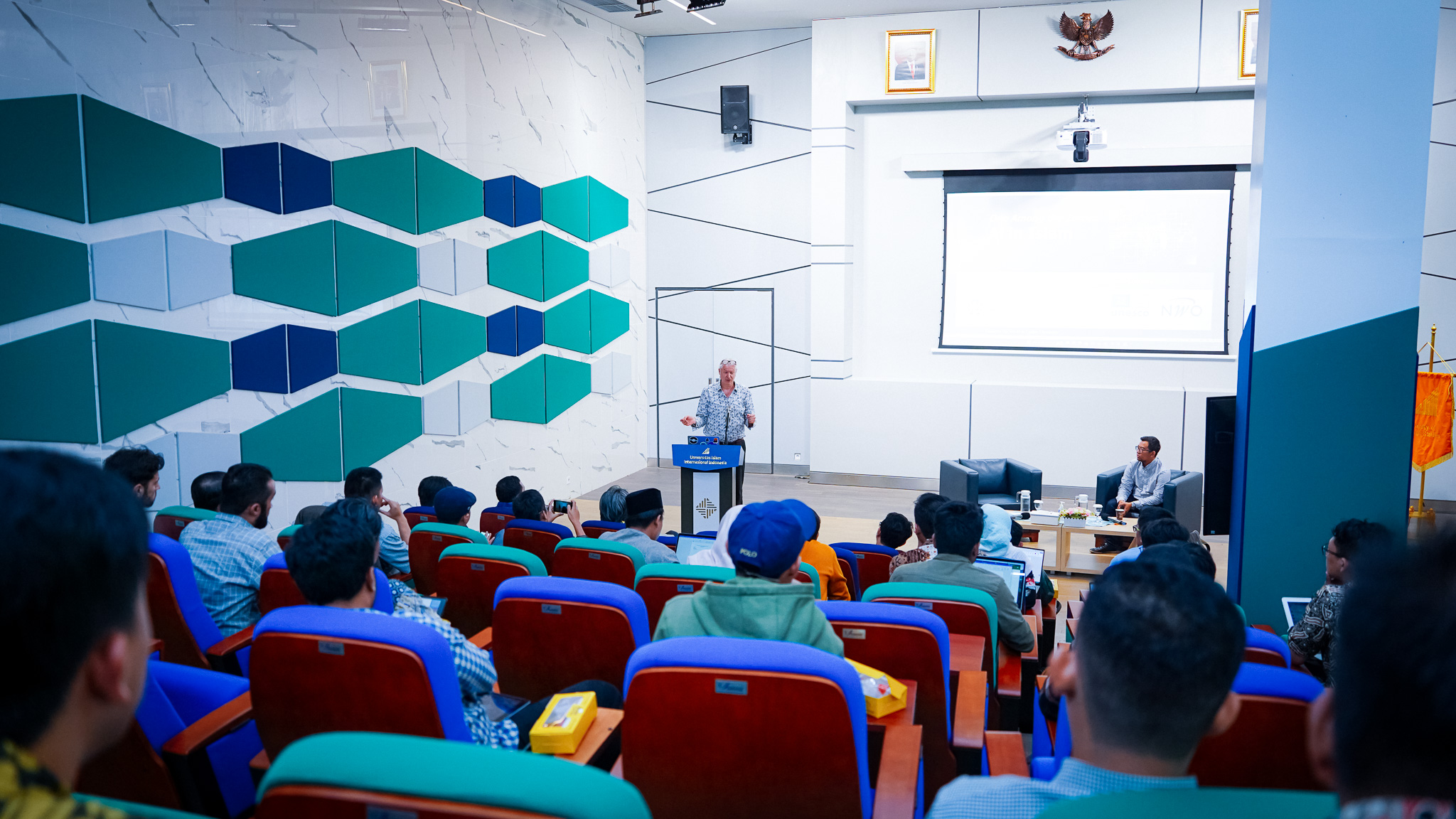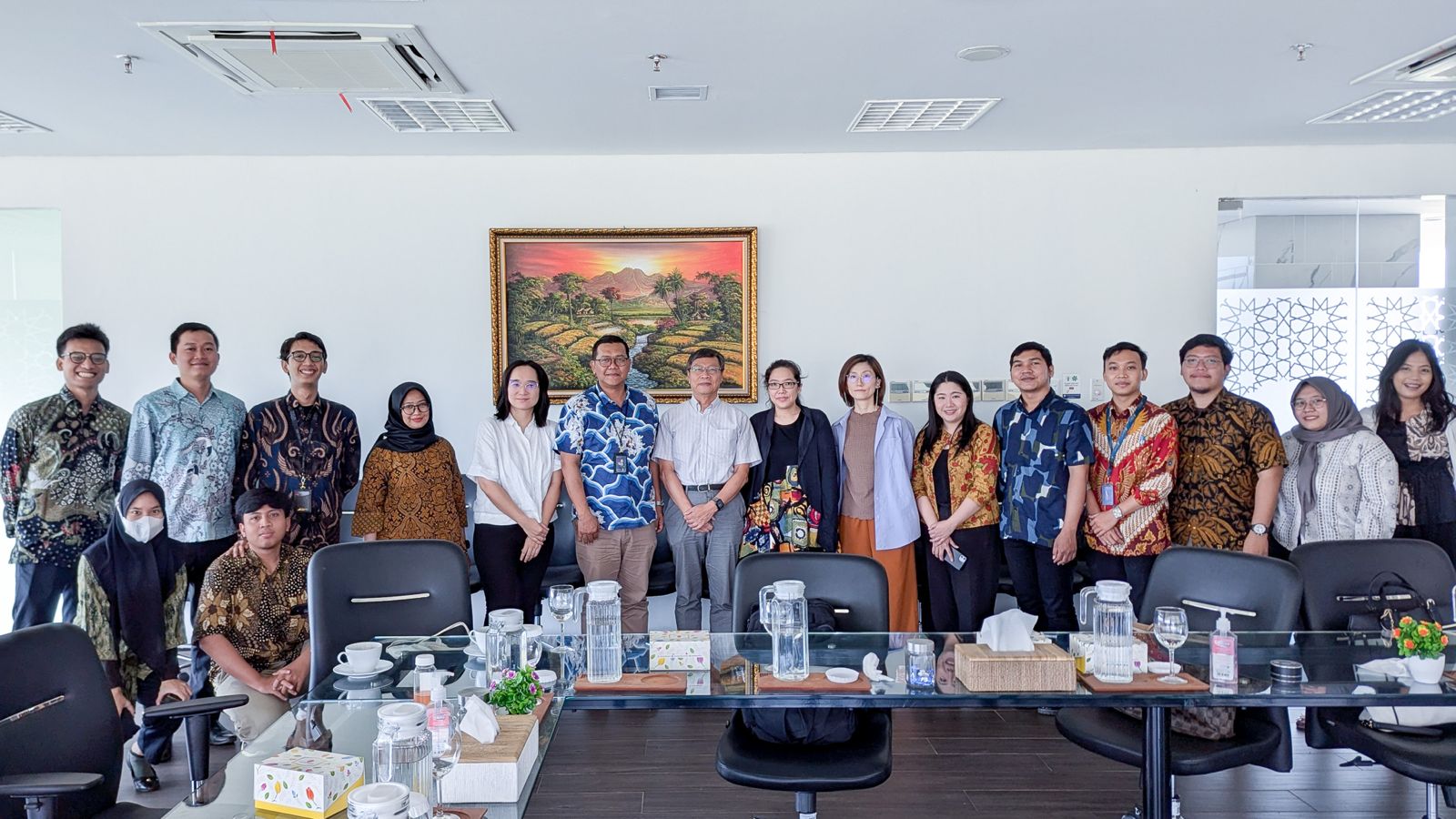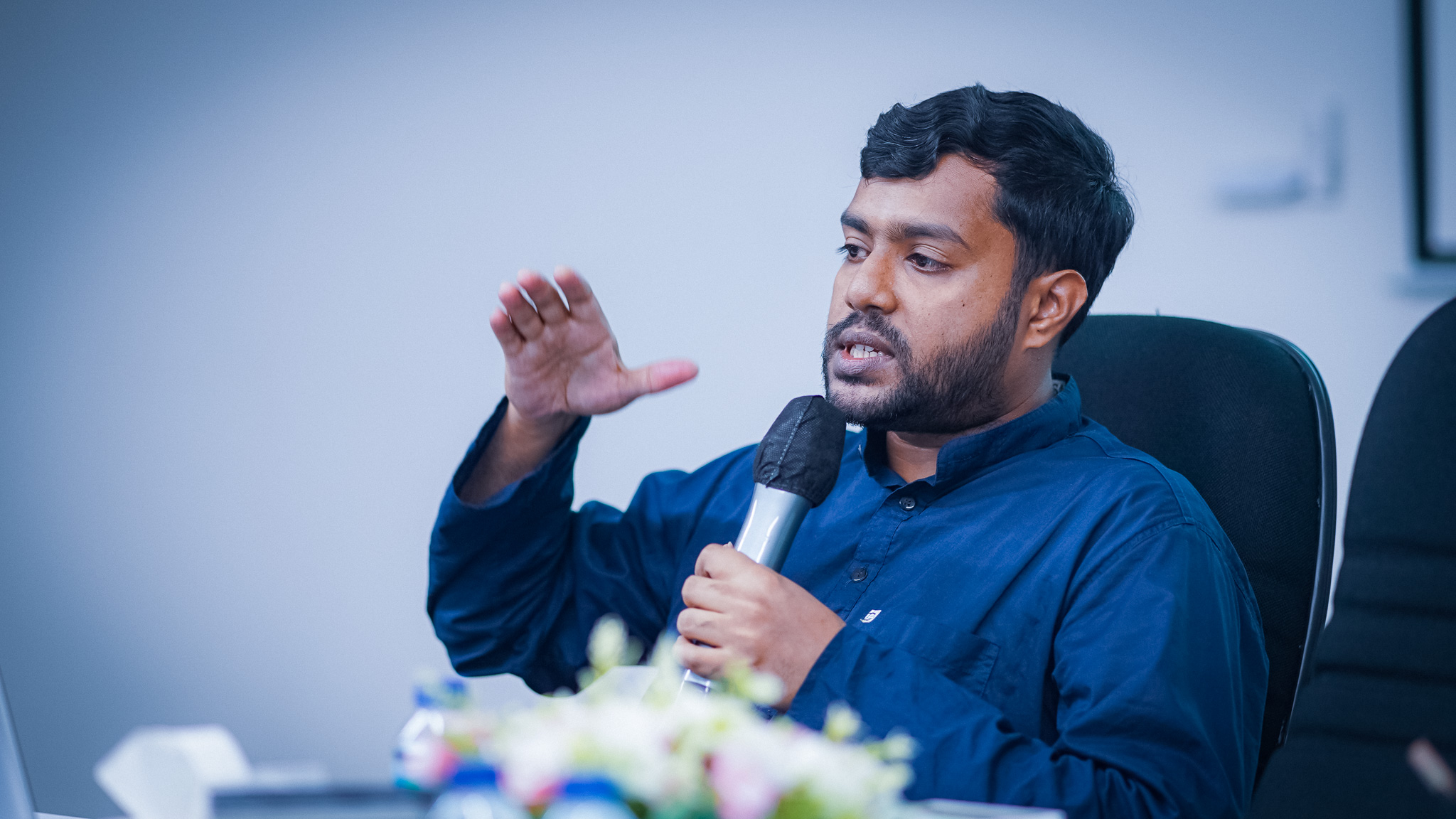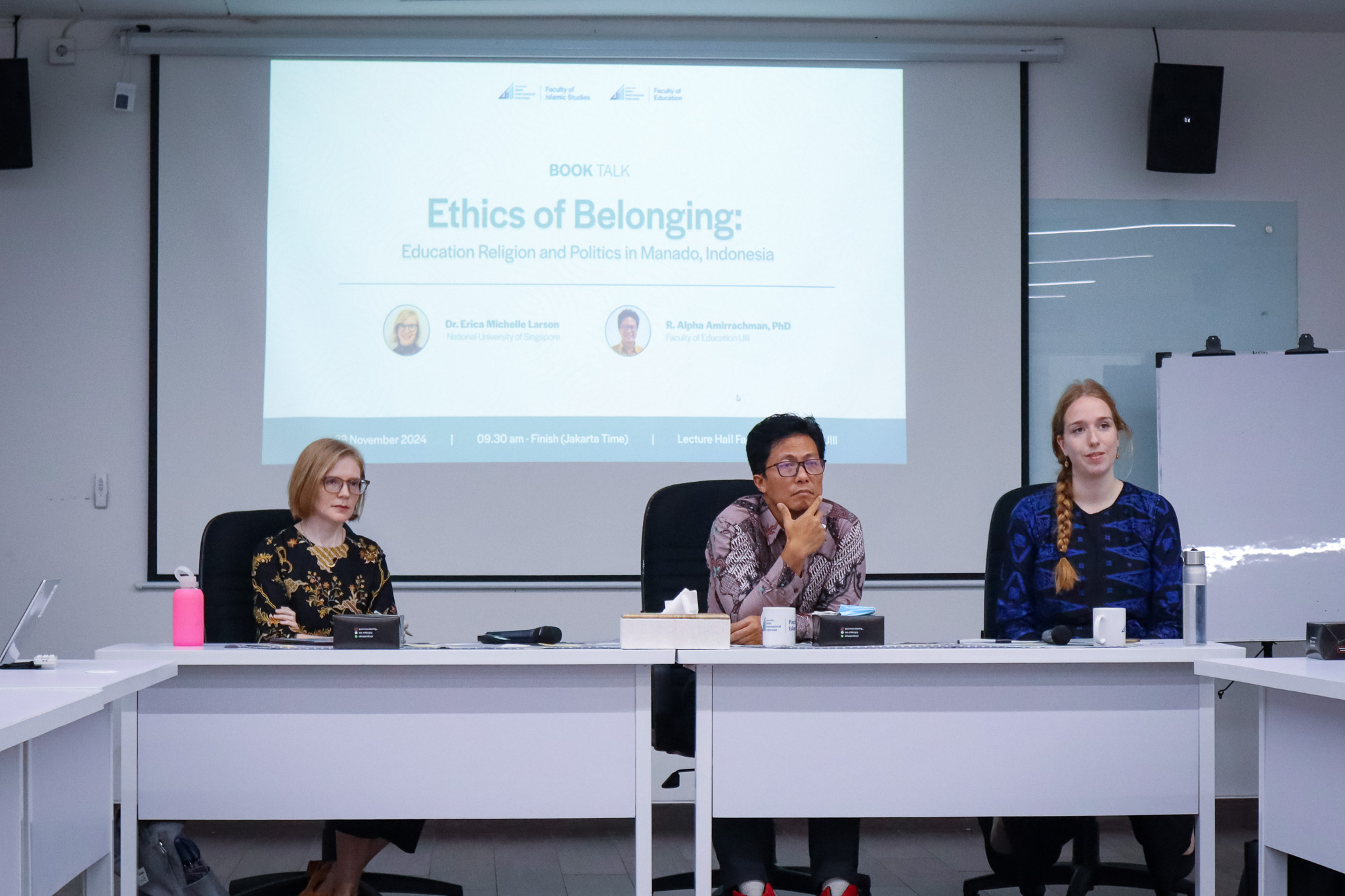The Intersection of AI and Islam? Unveiling the Anthropological Insights
May 17, 2023Contributor: Kante Hamed | Editor: Dadi Darmadi

In a thought-provoking public lecture organized by the Faculty of Islamic Studies, Professor Bart Barendregt from the University of Leiden, the Netherlands captivated the audience with his expertise in Digital Islam. Titled "One Among the Zeroes: Towards an Anthropology of AI in Islam," the lecture explored the intersection of artificial intelligence (AI) and Islam, shedding light on the implications of technology in Muslim societies.
Moderated by Dr. Bhirawa Anoraga, the lecture took place on May 11, 2023, at the UIII Theater Room in the Faculty A Building. Attendees gathered to understand how AI intertwines with the faith, shaping our understanding of technology's role in Muslim society.
Professor Barendregt presented significant concepts focused on the interaction between AI and Islam, dispelling the myth that religion and technology are inherently opposed. He highlighted examples of an "Islamic Renaissance," including halal banking and Sharia-compliant financial systems.
Delving deeper, Professor Barendregt discussed everyday AI and its transformative abilities, emphasizing its power to perform tasks that once required human intelligence. By uncovering the social construction of AI, the lecture underscored how individuals employ digital platforms to shape their visions of the future.
Ethical dilemmas surrounding AI also took center stage. Professor Barendregt questioned whether people would feel justly "judged and assisted by a technology they themselves have created." He drew parallels between Islam and AI, comparing imams to individuals well-versed in AI who can explain its complexities to others. The lecture explored the potential of AI in writing sermons and issuing fatwas, presenting novel ethical considerations.
The event delved into the anthropological debates surrounding AI and Islam, emphasizing the roles of creators and users in the Islamic context. It examined the challenges of making "AI less abstract" and discussed cultural biases ingrained within AI systems.
Furthermore, the lecture examined the significance of studying AI in Islam, particularly in Southeast Asia, highlighting the need for AI literacy beyond Western secular perspectives.
The lecture concluded with a lively Q&A session, exploring matters such as Zakat AI, digital poverty, and the unique engagement of digital Muslims. The combination of AI with religious practices sparked stimulating discussions among the audience.
Professor Bart Barendregt's lecture on the anthropology of AI in Islam was enlightening. It challenged preconceived notions and paved the path for further research into the complex relationships between AI and the Islamic faith. Understanding the impact of technology on social norms and religious beliefs is crucial as technology develops. The lecture inspired people to consider the promise of digital Islam and the unanticipated ethical issues that arise when AI and religion converge.
- Grit, Innovation, and Adaptation: Key Themes in FoE’s 3rd Graduate Forum for Education Future
- Student-Led Research Community Series Kick Off with Academic Publishing Session
- Advancing Institutional Governance through Risk Management Training
- A Night of Unity: International Iftar Brings Students Together in Celebration
- Vice Minister Joins Iftar with UIII International Students, Hearing Their Stories
- FisFastFest Showcases ‘TransformMe’ Spirit with Intense Quiz Competition
- Ramadan Unites Us: UIII Hosts Iftar Gathering to Strengthen Bonds
- It’s Time for Africa! UIII Aims to Expand Outreach in African Continent
- Future Innovators Gather at UIII for 1000x Challenge Mentoring & Briefing
- UIII and Al-Azhar Strengthen Ties for the Advancement of Islamic Civilization


